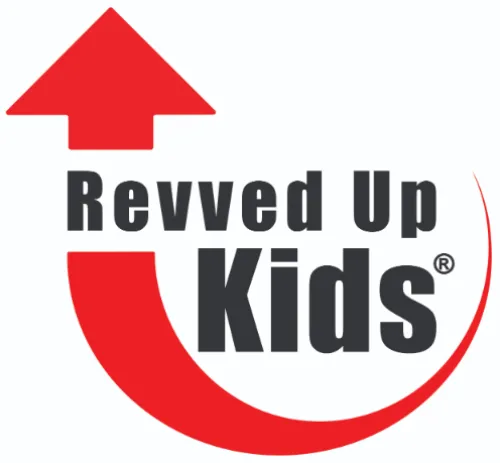In today's digital age, the internet has become an integral part of our children's lives. It offers countless opportunities for learning, entertainment, and connection. However, with this vast virtual world comes the disturbing presence of online pornography. Contrary to popular belief, the dark web isn't the only place where this harmful content exists. It's silently infiltrating every corner of your child's online experience. At Revved Up Kids, we believe that knowledge is power, and in this article, we'll share some facts and some tips for protecting your children.
The facts about online pornography
Recent studies have revealed a startling truth: the average age of a child's first exposure to online pornography is just 11 years old. Gone are the days when we could rely solely on parental controls or filtering software. Today's children are being targeted in more insidious ways, with explicit content finding its way into seemingly innocent online spaces. It's essential for parents to recognize that online pornography is not limited to the dark corners of the internet but is increasingly present in mainstream platforms, social media, and even gaming communities. To illustrate the fact that no site or app is immune, search the word "sex" on Pinterest and see what comes up.
Make no mistake, the companies and individuals who profit from online pornography are being very deliberate about luring your children. They expose your children using child-friendly search terms on their sites, and pop-up ads that they embed in sites and apps. Here is one example of a search that a child might conduct using the search term "spongebob videos" that could lead them onto a pornography site:
The agenda of these companies is to normalize sexual content and pornography for very young viewers; their marketing tactics target children as young as age 5. Today's 5-year-old is tomorrow's paid-content subscriber.
Social media platforms are another avenue for exposure to pornographic content. Maybe a curious teen sees a public post that includes a couple kissing and they click, like or share. The platform's algorithm will then start sending similar posts, then more explicit posts. Your child is being groomed by machine learning, and the execs at the social media companies are not doing all that they can to prevent this.
It should also be noted that a child's first exposure often comes through a friend who has learned about pornography (often older siblings can be the catalyst for this) or even through a search phrase that has nothing to do with pornography as illustrated previously. In one survey of children and teens ages 8-17, of the respondents who had seen online pornography, 70% indicated that they came across it accidentally during research for a homework project. The pornography sites spend a lot of money on SEO to draw people to their sites from completely unrelated searches.
The vast majority of teens who view online pornography indicate that they are using it as a way to learn about sex. The challenge here is that a high percentage of online pornography includes rape and violence, and rarely, if ever, does it depict consent.
Action steps for protecting children from online pornography
Recognizing these tactics, and maintaining open and honest communication with our children, allows us to be more proactive in safeguarding their online experiences. Establish a safe, non-judgmental environment where they feel comfortable discussing their online activities. Your child cannot be held responsible for falling victim to the tech masterminds who are working so diligently to lure them! Being punitive is counterproductive. Rather, we encourage parents to regularly discuss internet safety, appropriate online behavior, and the potential dangers of pornography, and ensure that children are equipped and informed with appropriate knowledge that will help them navigate their online world safely and responsibly.
Teach your kids about the dangers of pop-up ads. Young children should be instructed never to click on them, and older children should be taught how to appropriately screen them. Also teach them to read search results beyond just the blue text at the top of the result. They should read the black text with the summary of the page before they click, and they should look carefully at the URL (link address) to make sure they're going to a safe site.
Safeguarding your young children is critical. Set up protections in your browsers (Google, Apple/Safari, Microsoft/Edge) use parental control software and stay on top of trends by following some of the experts (including @revvedupkids) on social media.
For older children, you must be willing to acknowledge that online pornography IS being viewed, shared and emulated by a large percentage of teens (2/3 of girls and 93% of boys will have viewed it before they turn 18). This is not the best avenue for our kids to learn about sex but, as we mentioned, many of them use it as a teaching tool. That's where you come in.
- First, self-educate so you're speaking from a place of knowledge (here are a few expert resources: Emily Rothman TEDMED Talk, CNN story about the Commonsense Media Teens & Pornography Study, and data points from Fight The New Drug).
- Next, be open and willing to answer questions, share your concerns, and give your teens thought-provoking information in a non-judgmental way. Teens are always more receptive when they feel included in a dialogue vs. when they feel like they're being told how to think. They also may assume that you have no idea about the prevalence of online pornography, so they may not feel comfortable coming to you to discuss what they're seeing. A question as simple as "Hey, do you know a lot of people who are looking at online porn?" could be a great way to start the conversation. Or you could use a news story to open a dialogue.
- To aid the conversation Revved Up Kids offers our #SocialSavvy for Parents seminar and our Protected While Connected workshop for tweens and teens; consider coordinating a private group!
Protecting our children from these dangers, in their online and real worlds, isn't easy and it's definitely not a comfortable conversation. We are here to help! At Revved Up Kids, we are committed to equipping parents with the knowledge and tools they need to keep their children safe from sexual abuse, exploitation and trafficking. Please feel free to contact us with your questions about online dangers or about our other prevention training programs.
Revved Up Kids has trained tens of thousands of children to recognize dangerous people, avoid unsafe situations, and respond appropriately if they are approached by a predator. Our training programs are available for boys and girls in K-12th grade, for young women 18-22, for parents, and for youth serving organizations. Contact us to discuss protecting the children you love from sexual predators and violence, 678.526.3335.

